Search Results
Search
Filter results:
Advanced Filters
Your search returned 34 Solutions
-
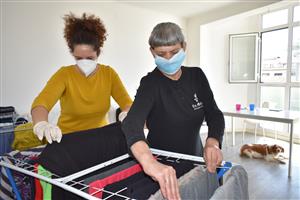
People-centred housing services for persons with psychosocial disabilities
Founded by Support-Girona from Spain in 2018, the Housing Commission supports people with psychosocial disabilities to access housing. A person-centred methodology ensures that they can decide for themselves where and how they want to live. By 2022 more than 50 people have found housing in this way.
Support Girona, Top House Housing Commission, Spain -
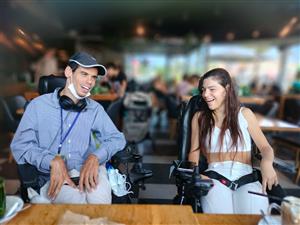
Supported housing for persons with complex disabilities
JDC Israel Unlimited’s ‘Expanded Supported Housing’ programme supports adults with severe disabilities aged 21–55 to live independently. The services include help finding an apartment, actualizing rights, budgeting, cultivating autonomy, and building independent life skills as well as ongoing support.
JDC Israel - Israel Unlimited, Expanded Supported Housing, Israel -
"Proefwonen" – fast access to affordable homes
Through "Proefwonen", housing and social service providers collaborate to facilitate rental access for people with intellectual disabilities or mental health problems. A steering group matches available housing with the candidate-tenants through a consensus process. 24 candidate-tenants have entered the program over a period of three years.
Zennevalley Home Furnishings, Belgium -
Supportive Housing: Helping young adults to live independently
Supported Housing assists young adults with intellectual disabilities to become involved in community and social activities. Once they are transitioned into their apartments, they are provided with a care coordinator who teach them to live independently and who are continuously involved in their overall well-being.
JDC Israel - Israel Unlimited, Israel -
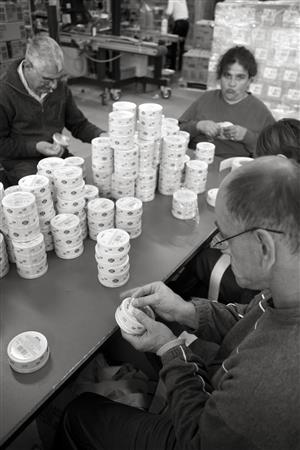
Living alone with individualized support
API developed models of community-based services, such as "organized housing" and specialized foster family care, to enable children and adults with intellectual disabilities to move from large residential institutions to a life in the community. In 2003, "organised housing" was introduced by law as a new type of service.
Association for Promoting Inclusion, Croatia -
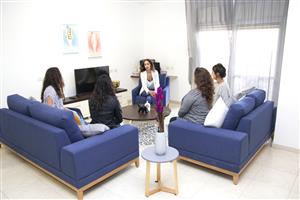
Supported Housing for Women with Psychosocial Disabilities and Sexual Trauma
Three or four women with post-traumatic stress disorder due to sexual abuse share an apartment. A female social worker and rehabilitation counselor, both trained in sexual trauma and Dialectical Behaviour Therapy (DBT), visit the apartment daily. The service offers personal meetings, group therapy, and peer support.
ENOSH - The Israeli Mental Health Association, Seeds of Wellness, Israel -
Housing and life-skills programme for adults with intellectual disabilities
In 2008, Mexico’s Fundación Inclúyeme began operating a programme that enables adults with intellectual disabilities to live independently by providing inclusive and serviced housing, support in finding employment, and recreational activities. By 2022 up to 3,000 people have benefited from the programme.
Incluyeme Foundation, Inclúyeme Adult Life programme, Mexico -
Cross-sectoral effort to build accessible homes for people with disabilities in poverty
Puspadi Bali operates a housing project in Bali for people with physical disabilities living in poverty. The houses are built after an individual evaluation and in collaboration with Warmadewa University and Journeyman International, an NGO focusing on architectural services in a humanitarian context.
PUSPADI Bali, Accessible Housing, Indonesia -
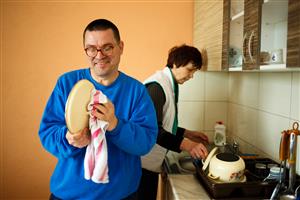
Housing and person-centred support for persons with intellectual disabilities
Union SUMERO is supporting persons with intellectual disabilities to live together in shared accommodations of up to five residents. Assistants support them to carry out daily tasks, and thus enable them to stay in their local communities. Between 2011 and 2018, 80 users moved into 25 houses across the country.
Association Sumero, Bosnia and Herzegovina -
Combining architecture, universal design and social work, RIOinclui offers accessible housing for children and youths with disabilities living in poor conditions in the city of Rio de Janeiro. A full network of local support is provided.
Targeting physical and social mobility at the same time, the project goes beyond architectural interventions: reasonable accommodation for the beneficiaries and their care-givers is created. The whole family is empowered to benefit from statutory social welfare; a network of local support is provided.
RIOinclui - Social Work of the City Rio de Janeiro, At the nexus of architecture and social work in Rio, Brazil